You can download this carer newsletter as a magazine, see below. Or you can continue to scroll this page to read our latest news for carers as web content.
Download Carer Newsletter as a magazine (spreads) Download Carer Newsletter as a magazine (A4 for printing)Introduction to our carer newsletter
Welcome to our newsletter for carers.
We make this newsletter, with carers and staff, to share information from our Trust and local communities.
We work alongside people who care for their partners, family, or friends. We know that many unpaid carers may not identify as one, or know they are one.
In this newsletter, when we say carers, we mean anyone who provides unpaid support that someone in our care relies on.
Involvement opportunities
Opportunity for carers to share their experiences with future doctors
Written by Anthony Heslop. Anthony is a lived experience educator within our medical education team. Before starting this role in January, he was an inpatient peer worker for the trust.
Each year, medical students in their third and fifth years come into our Trust for several weeks to learn about mental health. While they are with us, the medical education team arrange for their classroom tuition and front-line placements on wards and in the community. At the end of their five-year degree course, they become doctors, and some will be our future psychiatrists.
As a lived experience educator, it’s my job to bring a lived experience perspective to the student’s learning. Something that’s important to me is not to become isolated from the community I represent. I don’t rely solely on my own experience to bring that lived experience point of view. And of course, lived experience is not just about the person who experiences the mental health difficulty. It’s also about the people who care for and support the person.
So, the way I approach my work is not to be an educator, but rather a facilitator. I look for opportunities to bring lived experience voices into student tuition.
One such opportunity is an informal chat event we are planning for spring 2024. We hope to bring as broad a range as possible of people with lived experience together. This will include carers, of course. The group will talk with students about how mental health difficulties have affected their lives: what has been difficult, what has helped and what they would want from their future doctors.
We have some carers supporting these events already but would love to have more. If you’re interested and would like to know more, please do contact me at [email protected]. The usual support with travel or travel expenses is available, as well as a thank you payment should you wish to accept it.
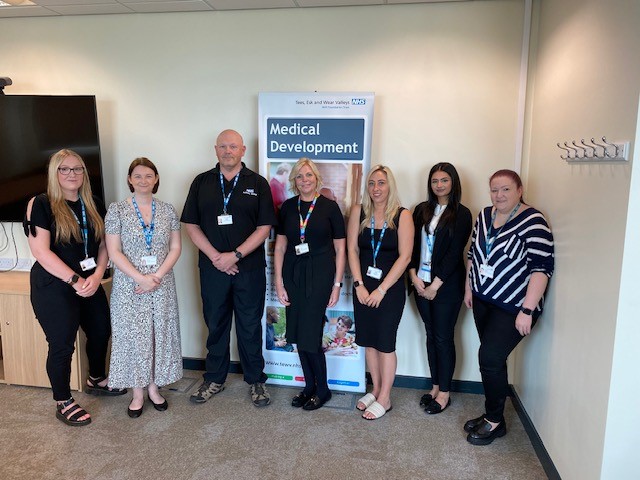
Our northern undergraduate medical education team working with student doctors.
Our Carers Working Group
Our Carers Working Group meets once a month over Microsoft teams.

They aim to improve people’s experience at every level of our Trust. The group is all about highlighting the voice and specific needs of carers.
If you choose to join, you’ll be in good company. Many of the carers in the group are driven to make improvements and support others. Together they give valuable feedback from a carer perspective.
The group has been influential across many projects, as well leading on some important work. For example, the group has organised conferences and open events, as well working on providing detailed website information for carers.
Meetings are on Microsoft Teams. They currently take place from 9-10.30am on the fourth Wednesday of every month.
New members are always welcome. To get involved you’ll need to be an involvement and engagement member (see below).
Register for involvement opportunities
Would you like to share your views, as someone who has experience of being a carer? We’d love to hear from you. Getting involved means you’ll be able to work with us on important work and improvements.
Opportunities include:
- Taking part in focus and involvement groups
- Working with us to improve services
- Working with us on a range of projects
- Helping us to recruit staff
- Taking part in hospital inspections
If you register for involvement opportunities, we’ll keep you in the loop about involvement opportunities you may be interested in. You can choose which, if any, you’d like to take part in.
When you register, we’ll make sure you have key information, such as how to claim expenses and an involvement fee.
Please get in touch to ask about involvement opportunities and activities. Email: [email protected]
Phone: 01642 516468
Working together to improve mental health services for older people
Written by Laura Blake. Laura facilitates the Mental Health Services for Older People (MHSOP) Patient and Carer Co-creation Group (PCCG) which is chaired by modern matron, Tyra Sutton.
Our Trust is committed to working together with patients, carers and partners. We call this co-creation. With that in mind, in our Mental Health Services for Older People (MHSOP) around a year ago we developed a Patient and Carer Co-creation Group (PCCG).
Our PCCG currently includes 17 members. Most group members have lived experience of accessing our services. They are passionate about using their personal experiences and perspectives to improve services for others.
Each group member is given the opportunity to share their thoughts, experiences and ideas. Some group members report that being involved with our group has given them back a purpose and confidence. They say it has increased in their self-esteem, knowing they are giving something back and making a positive difference.
Our group is one of the sounding boards within MHSOP. Teams can come to us to gain ideas for development opportunities. Our group currently reports into the Quality Business (QBI) and Quality Assurance & Governance (QAIG) Groups and going forward will also report into the North Yorkshire, York and Selby (NYYS) Co-creation Board.
Our group are here to help with any specific areas that clinical teams wish to improve on. We can offer feedback and suggestions that may be required to facilitate positive change.
We are also happy to be involved with any audits, pilots, clinical pathways, and operational policies. The group’s lived experience means we offer an invaluable insight and can identify what improvements are needed.
If you’re a patient or carer who would like to join our group, please get in touch. We’re always happy to hear from people who are passionate about using their personal experiences to improve services.
Email: [email protected]
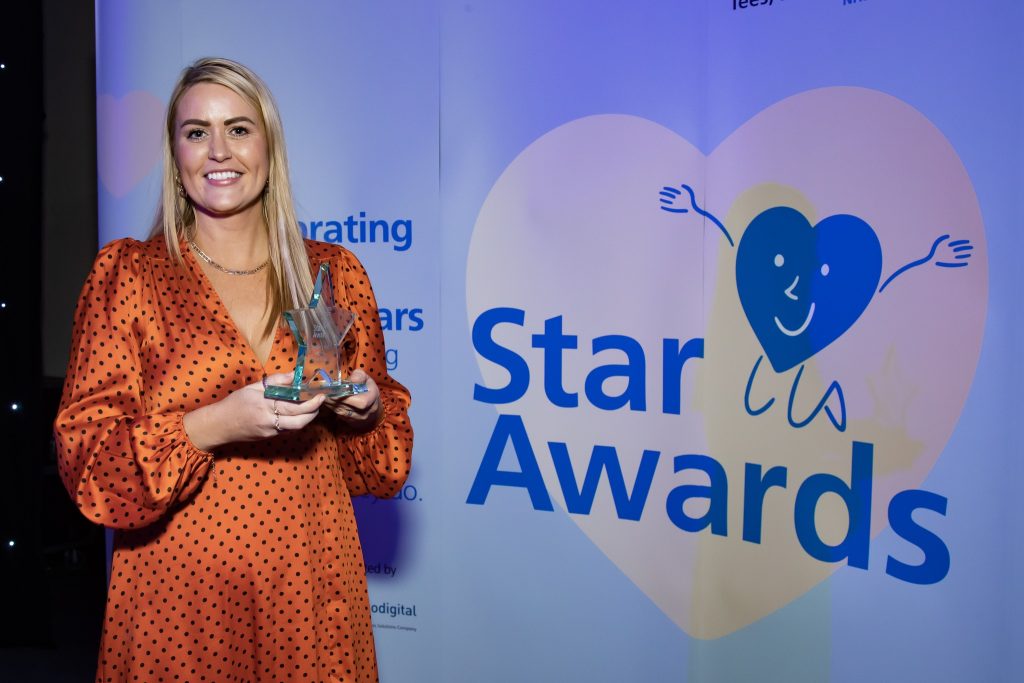
Laura Blake won our People’s Star award last year. This award recognises the real difference Laura makes to the experience of the people in our care, their family members and carers.
Therapy dogs are just paw-fect at helping patients
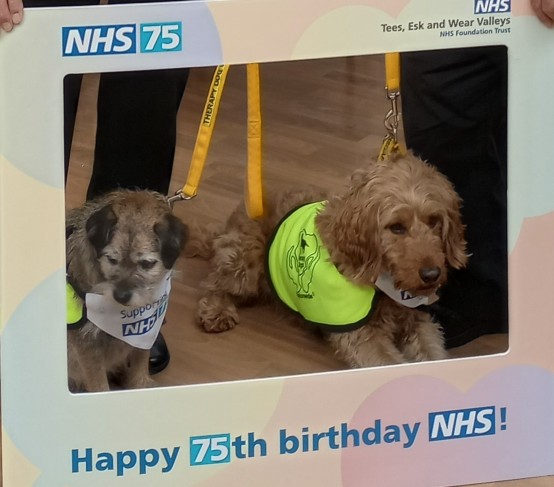
It’s a dog’s life for County Durham animal lovers Pam and David Coombs – and they couldn’t be happier about it.
Read the therapy dog storyTrust staff are top of the class after uniform appeal
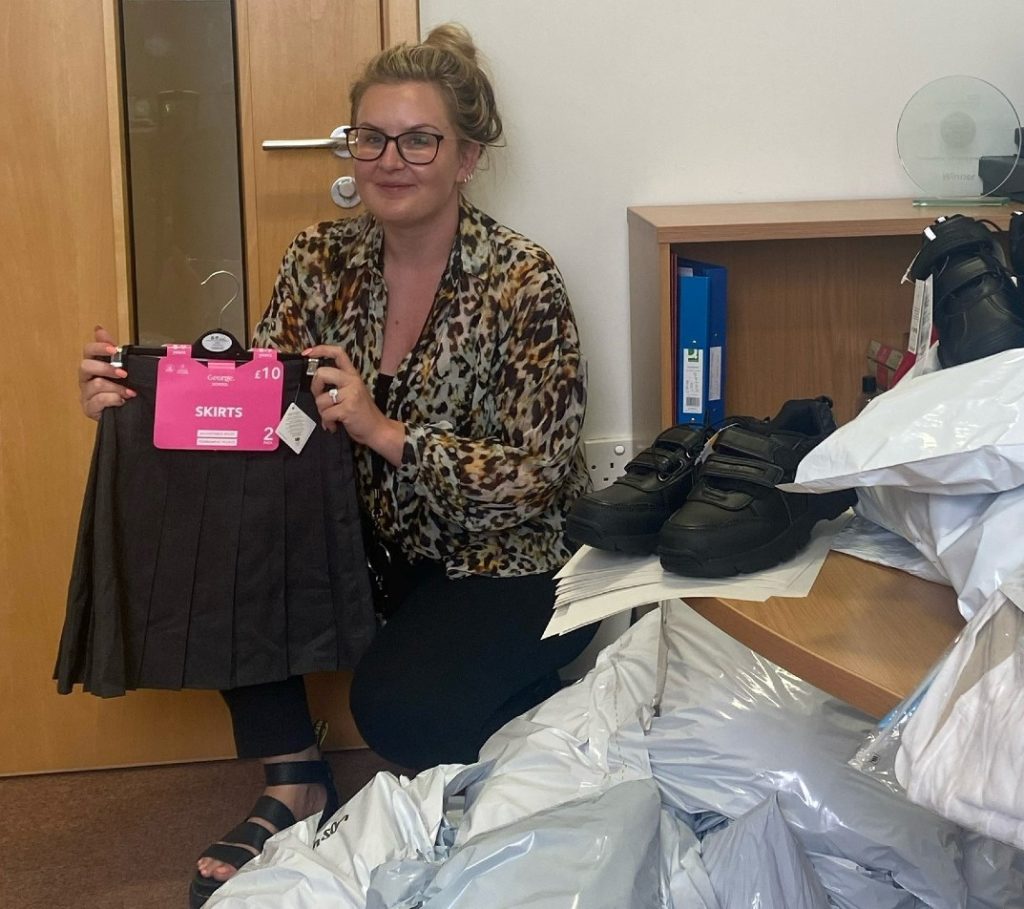
Dozens of children from Middlesbrough started school in style this September – thanks to kind-hearted Trust workers.
Read the school uniform storyAward-winning care assistant retires after decades without a day off sick
Dedicated Teesside health care assistant Debbie Robinson has devoted her whole working life to helping others – clocking up over 34 years without taking time off for sickness.
Read Debbie’s storyNew support group in Whitby for our Trust’s carers
Susan Dodsworth runs a support group for carers of people in our services in Whitby. Susan is a Carer Champion in the Community Mental Health Team at the Anchorage in Whitby. Here she explains how it came about.

I am extremely passionate about supporting carers/family members of our patients. I believe this is crucial for carers’ emotional wellbeing.
Our group meets on the first Tuesday of every month. It’s facilitated by myself and a member of the local Carer Support Organisation, Carers Plus.
Carers say they appreciate the relaxed chatty atmosphere of the group. They say it’s nice to talk to others in similar situations which makes them feel like they aren’t alone. One carer told me: “I enjoy speaking with other people and getting ideas on things to do that can help in certain situations.”
Carers are often dealing with their own mixed emotions. This may be their first experience of supporting someone with mental health difficulties, possibly evoking feelings of sadness, guilt and frustration. One of the reoccurring themes identified among carers was the feeling of isolation.
That’s why I developed the carer support group, where any carer of a person using our service can attend. The group is very informal with no set agenda. We have tea and biscuits, get to know one another, and talk freely about experiences, feelings and discuss their difficulties, thus increasing the level of emotional support carers receive.
My manager, Patrick Appleby-Reid, supports me to work creatively, enabling me to assist carers and families. So, I started to contact carers informing them of the carers support available. Building on this, over the last few months, means I now have carers who I contact on a weekly/monthly basis depending on their needs.
I aim to give carers a safe space to talk about their thoughts and feelings, provide updates on the patient’s progress, address any concerns or questions, or provide emotional support. Having one dedicated member of staff as the carer lead means I can build therapeutic relationships with carers. This contributes to forming a positive, collaborative relationship between patients, professionals and carers.
Members of the group told us it provides:
- Respite from caring responsibilities
- Opportunities to relate to other people
- Perspective and a safe space
- Safe place or a vent
- Time to speak to those with shared experiences
- Help to understand things a bit more and learn from others
My visit to No. 10 for Carers Week
This article was written by Ros, a volunteer, carer and involvement member.
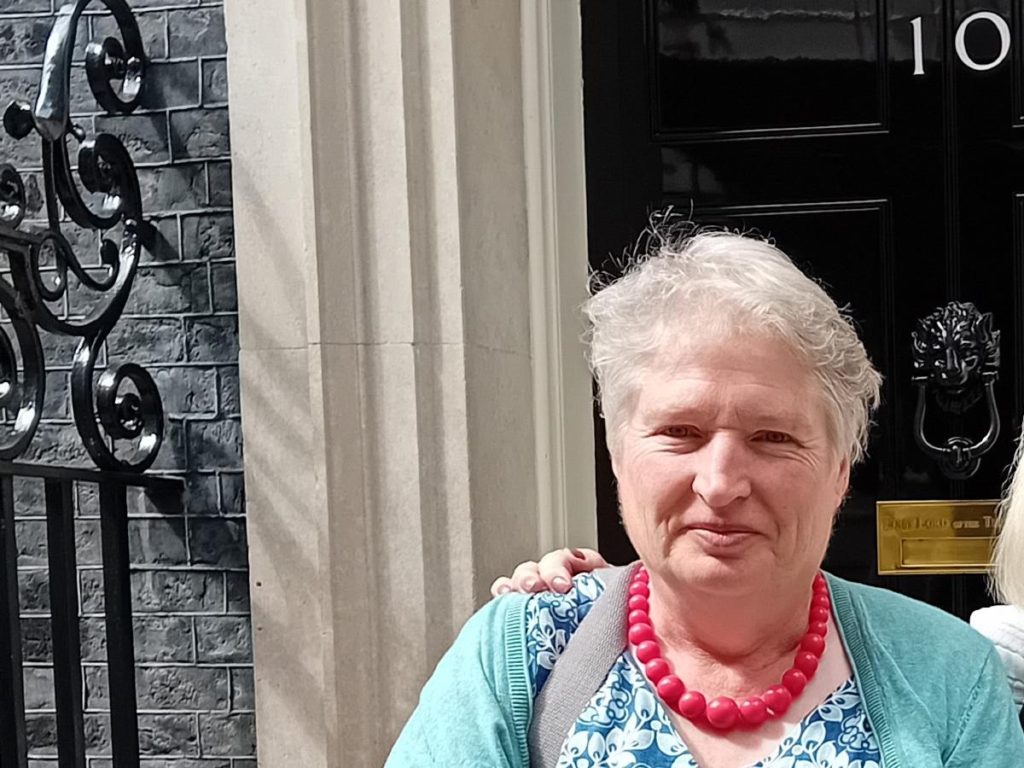
At short notice, the mental health charity Rethink (that I do some work with) was asked to produce two carers and a member of staff for a reception in No. 10 to mark Carers Week. It was to be hosted by the Minister for social Care Helen Whately. I and Philippa Lowe were asked – and accepted.
I travelled down on an early train and went to the plush new Rethink offices on the Embankment. Philippa and I were joined by the Chief Exec Mark Winstanley and went by taxi pulling up at the security gates. Along with about 30 other carers and staff from a variety of UK charities including the Carers’ Trust, Young Carers, MND charity, Age UK, we walked up Downing St and went in the famous door – depositing all devices in the entrance. A slightly aged looking Larry the cat watched for a bit, flicked his tail, and then left by the front door.
The famous staircase with all the portraits took us up to a very plush and somewhat over the top red and gold state room (decorated to Margaret Thatcher’s specification – apparently). The Minister and others schmoozed the room and chatted with us all briefly, as we consumed – as politely as possible – very nice canapés, fruit punch and tea. She spoke about the new requirement for the CQC to inspect councils etc on their compliance with Care Act 2014, which requires services to value the wellbeing of carers equally with that of service users. She said how important we were! The Chair of the Carers’ Trust responded well.
We took photos as we left and I headed home. A good day but, as expected, more a nod towards positive parliamentary publicity for Carers Week than a real effort to find out what life as a carer is really like. That would have taken a good deal longer than the 1 hour 15 minutes allocated.
Our Journey for Change
Our Journey to Change sets out why we do what we do, the kind of organisation we want to be and the three big goals we’re committing to.
It was co-created with patients, carers, colleagues and partners.
Find out more about Our Journey to ChangeThank you for reading our Trust’s carer newsletter. You can also view previous carer newsletters, which are listed in our publications webpages.